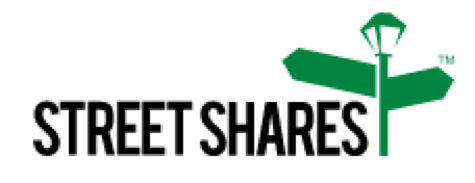Bad credit is a red flag for lenders. A poor personal credit score indicates you’ve mismanaged your personal finances in the past. Bad credit (a score that FICO classifies as 300 to 629) is one reason business loan applications get rejected — and the approval rate of business loans from big banks was just 23.1% as of April 2016, according to a Biz2Credit report. It’s already tough to get a traditional business loan. Bad credit makes it that much tougher.
But it’s possible to get a business loan despite bad credit. Alternative lenders provide options; they place more of an emphasis on the strength and operating history of your business and worry less about your credit. As with any small-business loan, it’s important to carefully compare all of your options, weighing each loan’s terms and APR.
Below we highlight some of your best options, depending on your personal credit score, revenue and business needs. Take a look at our recommendations:
IF YOUR PERSONAL CREDIT SCORE IS …
If your personal credit score is under 500
Fundbox: Fundbox, which has no minimum credit score requirement, is a good choice for businesses with unpaid customer invoices. It advances you cash based on the value of your invoices and emphasizes your clients’ ability to pay you rather than your credit score. Funding is as fast as one to three business days.
To qualify, you must use online accounting or bookkeeping software (QuickBooks, Xero, Harvest, Freshbooks or Wave) that can link to Fundbox and have a minimum of six months’ activity in one of these software applications. The company does not require a minimum personal credit score or minimum annual revenue.
Kabbage: Like Fundbox, Kabbage does not require a minimum credit score to qualify (although the company does check your credit history). The lender is a good option for business owners who need money fast for short-term working capital (such as meeting payroll and buying inventory). The company provides a line of credit that you can borrow from and repay on an as-needed basis.
To qualify, you need to have minimum annual revenue of $50,000; have been in business at least one year; and have a business checking account, online payment platform or bookkeeping software.
The company’s online application should take just minutes to complete, and if approved, you can get funded within a few days. You’ll pay a bit more for this speed and convenience, as the cost of Kabbage lines of credit ranges from 32% to 108% APR.
[back to the top]
If your personal credit score is 500 or higher
OnDeck: OnDeck is an alternative lender offering both term loans and lines of credit. A term loan is an option for businesses that need quick cash to expand, whether it’s to purchase equipment or make renovations, while a line of credit is best for managing cash flow and working capital.
To be eligible for OnDeck’s term loan, you need a personal credit score of 500 or higher, while the line of credit requires a minimum credit score of 600. Once you complete an application at OnDeck’s website, you’ll get a decision within minutes and funding as soon as the next day. And here’s a credit-building bonus: OnDeck reports your payment activity to the three credit bureaus, so paying off the loan on time can help you build your credit score.
BlueVine: If you have bad credit and lack collateral but you have unpaid invoices, BlueVine offers an option. The lender provides an advance based on the value of your invoices, and approval is based more on the strength of your cash flow and the financial strength of your debtors than your personal credit score.
Still, you’ll need a personal credit score of 530 or higher to qualify, as well as a minimum of $120,000 in annual revenue and at least three months in business.
[back to the top]
If your personal credit score is 600 or higher
Dealstruck: Dealstruck offers a variety of loan products and helps your business choose which option is best for you. The company offers a term loan for expansion, an inventory line of credit for businesses with recurring inventory purchase needs, and an asset-based line of credit for businesses with unpaid invoices.
The company requires a minimum credit score of 600 to qualify, but CEO Ethan Senturia says the lender has accepted scores in the 500 range (on average, Dealstruck borrowers have FICO scores between 660 to 700). You also need, at minimum, $150,000 in annual revenue, and you need to have been in business for at least year.
StreetShares: StreetShares is a good option for young businesses, as the lender only requires a minimum of one year in business and $25,000 in annual revenue. If you’ve only been in business for six months but already have $100,000 in revenue, you can also qualify. Besides also needing a minimum personal credit score of 600, your business needs to have strong cash flow to be eligible. Take note: on average, StreetShares borrowers have a minimum credit score of 705, have been in business 4 ½ years, and bring in from $700,000 to $800,000 in annual revenue.
[back to the top]
Need more options?
If none of these works for you, or if you’d like to compare your loan options, NerdWallet has curated a list of small-business loans best for business owners. All of our recommendations are based on the lender’s market scope and track record and on business owners’ needs, as well as rates and other factors, so you can make the right financing decision.
Compare business loans
This article was updated May 19, 2016. It was originally published Nov. 13, 2015.
Steve Nicastro is a staff writer at NerdWallet, a personal finance website. Email: Steven.N@nerdwallet.com. Twitter: @StevenNicastro.



No comments:
Post a Comment